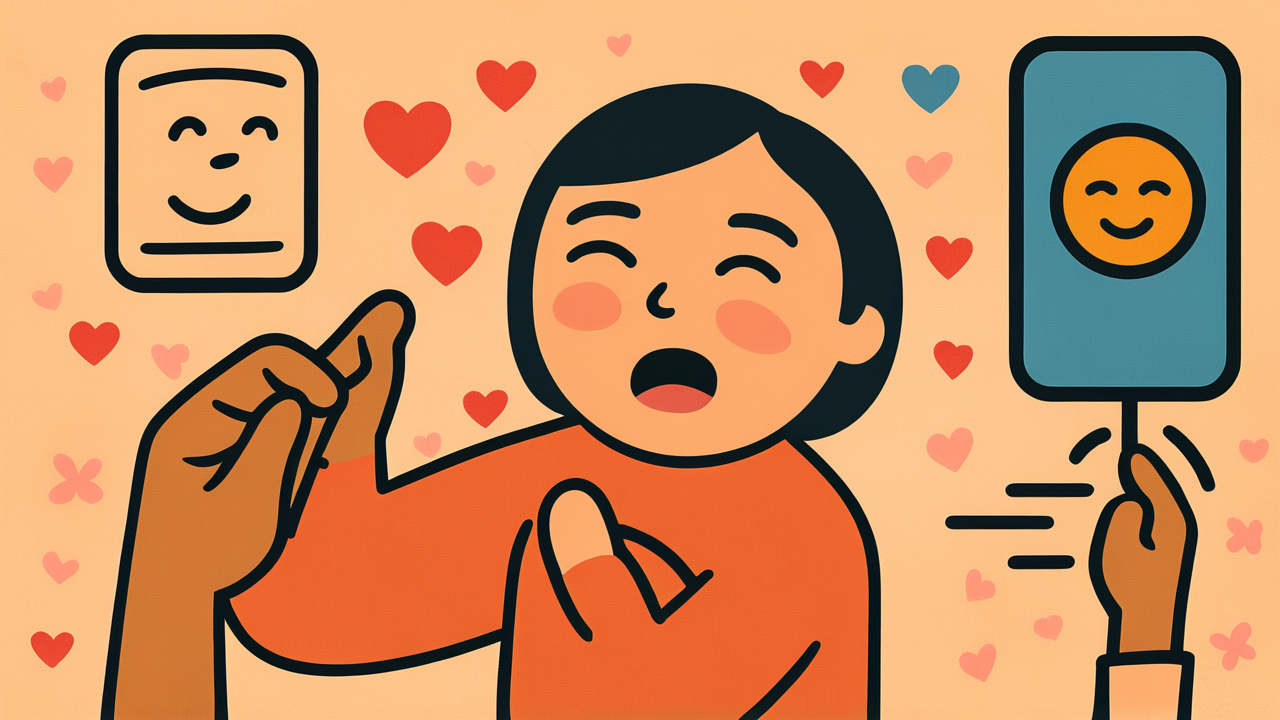How to Read “恋は盲目”
Koi ha moumoku
Meaning of “恋は盲目”
“Love is blindness” means that people in love become unable to see their partner’s flaws or problems, and lose the ability to make calm, objective judgments.
When romantic feelings become strong, people tend to idealize their partner or perceive obvious shortcomings as virtues. Even when the partner is someone that people around them worry about, the person in love often sees no problems at all. This is because romantic feelings cloud reason and judgment. This proverb expresses such psychological states of people in love by comparing them to “a state of being unable to see.” It is used in situations such as when addressing a friend who doesn’t notice their lover’s problems, or when objectively viewing one’s own romance. Even today, it is understood and resonates with many people as a phrase that accurately expresses the essence of love.
Origin and Etymology
“Love is blindness” is said to originate from the ancient Roman poet Ovid’s words “Amor caecus est (Love is blind).” This expression spread to countries around the world through Western literature, and is thought to have been introduced to Japan along with the influx of Western culture during the Meiji period.
What’s interesting is that the concept expressed by this proverb actually existed in Japan from ancient times. In Heian period literary works, expressions like “going mad with love” and “the illness of love” can be found, showing that there was already recognition that romantic feelings could dull people’s judgment. However, the expression using the metaphor of “blindness” came from the West.
The choice of the word “blindness” is also meaningful. Since vision is one of the most important senses for human judgment, losing it was perfect for expressing a state where normal judgment cannot be made. Through Meiji period translated literature and newspaper articles, this expression became established in Japanese. Today it is completely accepted as a Japanese proverb and is widely used as a phrase expressing the essence of love.
Usage Examples
- Even though she knows about his habit of borrowing money, love is blindness and she decided to marry him
- It’s natural that friends oppose it, but “love is blindness” is truly well said
Modern Interpretation
In modern society, “Love is blindness” has taken on new meaning with the spread of SNS and dating apps. In online encounters, only partial information about the other person is visible, making idealization even more likely to progress. Cases are increasing where people fall in love with images created from profile photos and post content, only to be surprised by the gap when they actually meet.
Also, precisely because we live in an age of information overload, the value of prioritizing emotions over logical thinking in romance is being reconsidered. Even in modern times when data matching and compatibility diagnostics have developed, emotional connections are ultimately valued because the essential parts of human nature remain unchanged.
On the other hand, in modern times, equality and healthiness in romantic relationships are increasingly valued, and there are voices warning against “blind love.” As problems like domestic violence and emotional abuse become socially recognized, the importance of viewing one’s partner objectively is also being taught. Nevertheless, the phenomenon of people’s judgment becoming dulled when they fall in love remains unchanged, demonstrating the universality of this proverb.
When AI Hears This
The “blindness” that prevents us from seeing our lover’s flaws is actually an ingenious mechanism that humanity evolved for survival.
According to research by neuroscientist Helen Fisher, the parts of the brain responsible for critical thinking show significantly reduced activity during romantic love. In other words, we’re intentionally blinded to our partner’s negative aspects. But why was such a mechanism necessary?
In primitive times, human babies were born in an extremely immature state compared to other animals. They required at least three years of cooperative parenting to survive. However, since no perfect human exists, relationships would quickly fall apart if we focused only on our partner’s flaws.
Evolution’s solution was “love’s blindness.” By making our partner appear more wonderful than they actually are, we form stronger bonds. Research shows that couples in love actually rate their partners 20-30% higher than objective facts would support.
Even more fascinating is how this “illusion” eventually becomes reality over time. By idealizing our partners and treating them accordingly, we actually help them grow closer to that ideal—a phenomenon that has been confirmed through studies. In other words, love’s blindness isn’t merely an illusion, but rather a “self-fulfilling prophecy” for building better partnerships.
Lessons for Today
What “Love is blindness” teaches modern people is the importance of balancing emotion and reason. While there’s no need to be completely calm in romance, we want to maintain the humility to listen to the voices around us.
What’s important is being aware that you are in a state of “blindness.” Precisely when you’re in love, listen to the opinions of trusted friends and family, and sometimes take time to step back and examine the relationship. This doesn’t mean denying your love for your partner, but rather wisdom for building a healthier, longer-lasting relationship.
Also, this proverb can be applied not just to romance, but to various situations in life. When you’re absorbed in a new job or hobby, when you’re enthusiastic about investments or shopping – the more emotionally heightened you are, the more you need calm judgment. By cherishing passion while also developing the habit of sometimes stopping to think, you can live a richer and more fulfilling life. While knowing the wonder of loving, we want to learn how to love wisely.



Comments